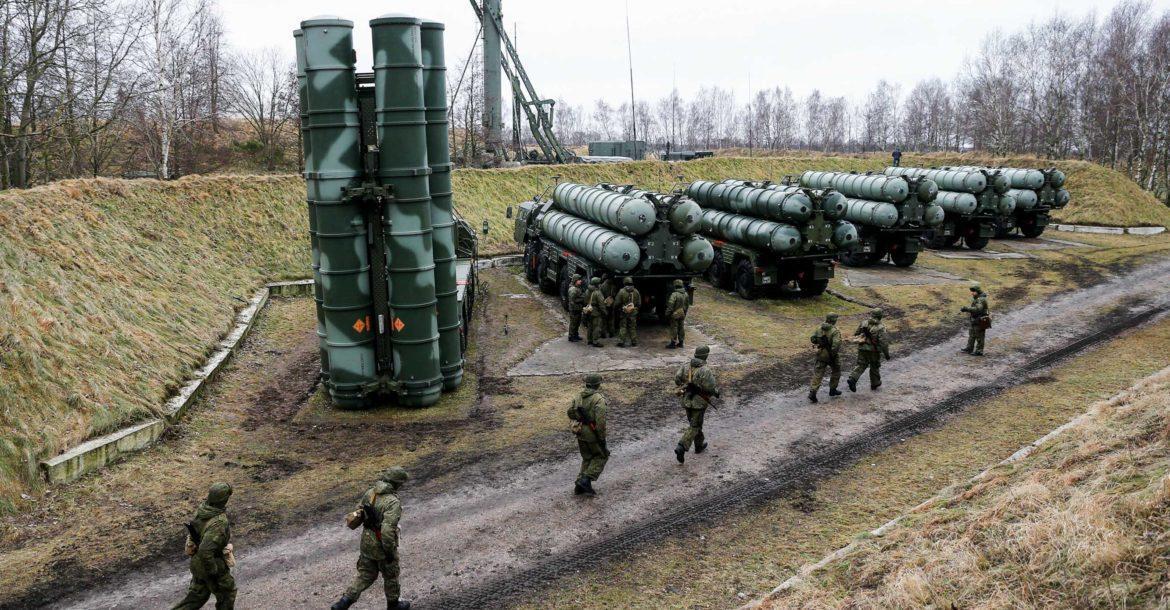
Turkey cannot accept the current criteria of a U.S. proposal for the procurement of the Patriot surface-to-air missile (SAM) system, a Turkish official has said, noting that Russia will deliver the first batch of the S-400 air defense systems to Turkey in July.
“The delivery of the S-400s will begin in July 2019. As of October, the system will be active. There are two systems, the second system’s calendar is set back, there is no problem,” the undersecretary of the Undersecretariat for Defense Industries (SSM), İsmail Demir, said in a televised interview.
Turkey needs to acquire more than two air defense systems, he said, recalling the ongoing talks with Washington for the purchase of the Patriot systems, whose details are yet to be clarified. “We cannot accept the content and details of the offer as it is,” he said.
On Dec. 18, the U.S. State Department approved a possible sale of the Patriot air and missile defense system to Turkey for an estimated total of $3.5 billion. On Jan. 3, a U.S. delegation formally made an offer to Turkey for the sale of Patriot systems.
Two separate U.S. delegations had held talks with their Turkish counterparts on the offer in the last six weeks. One of the delegations conveyed U.S. concerns over Turkey’s deployment of S-400s on NATO soil. Washington stressed that it can only supply these systems on the condition that Turkey cancels its deal with Russia on the S-400s.
The U.S. put an informal deadline of Feb. 15 for Ankara to respond to its offer on the Patriot systems. The formal U.S. offer for Turkey’s purchase of Patriot systems expires at the end of March, U.S. officials have told Reuters, after which a new offer would have to be submitted.
However, the U.S. offer did not commit to two major demands of Ankara: Providing credit and joint production.
In parallel to the Patriot negotiations, Washington increases pressure on Ankara for the cancellation of its deal with Russia on the procurement of the S-400 air missile defense systems on the grounds that the system risks NATO security both on political and technical grounds.
In the past few weeks, Washington has been carrying on with a silent diplomacy for its accelerated pressure on Ankara for the cancellation of the S-400 deal. In the latest move, last week, U.S. Vice President Mike Pence conveyed the U.S.’s concerns to Ankara on behalf of President Donald Trump and asked Turkey to abort its S-400 purchase.
Following this phone conversation, President Recep Tayyip Erdoğan repeatedly stressed that the S-400 missile system negotiations between Ankara and Moscow are a done deal. “We made the S-400 deal with Russia, so it is out of the question for us to turn back. That’s done,” Erdoğan said publicly a few days after the phone conversation.
Turkey officially signed a $2.5 billion agreement with Russia for the S-400s long-range anti-aircraft missile system. The U.S. warns that the Russian S-400 defense systems would jeopardize Turkey’s participation in the F-35 Joint Strike Fighter project.
“We are very concerned that the Turkish purchase of the S-400 missiles will endanger Turkish participation in the F-35 program and will likely result through our legislation in some sort of sanctions coming through the legislations called CAATSA [the Countering America’s Adversaries Through Sanctions Act],” a senior U.S. official told the Hürriyet Daily News on condition of anonymity.
“So the U.S. government is of the view that we will not proceed with the patriot sale if Turkey proceeds with the S-400 purchase,” the official has added.
Washington is concerned with the security risk that the S-400 system radars can pose on NATO defense capabilities, such as F-34 fighter jets. Americans believe that the S-400 radar can spy on Turkish territory exposing sensitive details of the F-35 performance, such as capturing minor patterns of F-35 flights despite its high stealth capability, a Turkish official familiar with the talks told the Hürriyet Daily News on condition of anonymity.
The U.S. is also concerned about the possibility of the Russian system’s radar monitoring on operational activities at İncirlik airbase such as the take-off and landing of aircrafts.
Secondly, the U.S. considers the S-400 procurement by Turkey as a security problem of NATO. Washington is worried on Turkey’s “deviation in its pursuit of security.” Besides, the U.S. interprets Russia’s sale of its defense technology to a NATO member country as an effort to crack the integrity of the Alliance.
Meanwhile, the U.S. will wait until at least November for the deployment of two F35 fighter jets in Turkey’s military air base in the eastern province of Malatya, the Daily News has learned.